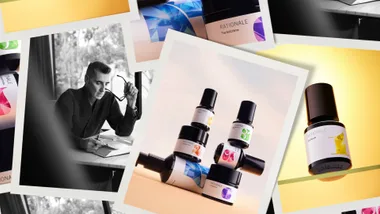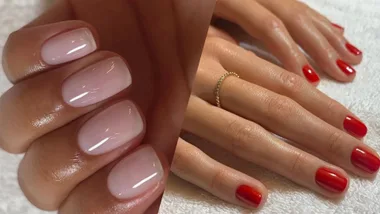There’s one undisputed fact when it comes to SPF and sunscreens that cannot be ignored – sunscreens are essential to reduce your risk of sun damage to your skin.
However, there are a whole heap of SPF myths that keep hitting us on repeat. Such as, sunscreen is only necessary when it’s a sunny day, right? Nope, that’s actually wrong…
To clear up the facts from the fiction, we asked dermatologist Dr Cara McDonald for her thoughts on the subject. Prepare to take notes.
Myth 1: You only need to wear SPF in summer or when it’s a sunny day
UV rays can penetrate clouds, which means even on cloudy, overcast days you can still experience sunburn. Wearing SPF every day should be a non-negotiable part of your skincare routine.
The UV index is a sliding scale of UV intensity, which takes into account the weather, the location and how close you are to the equator, pollution levels and even reflection.
“The recommendation is to wear sunscreen if the UV Index is 3 or greater, which is really the majority of the time,” says Dr Cara.
“If you’re concerned about premature ageing or skin cancer, then I would recommend playing it safe and developing a routine where you apply sunscreen at least once every day.”
And let’s be real. As Australia has one of the highest rates of skin cancer in the world, it is something we should all be thinking about.
Myth 2: Wearing SPF every day will reduce vitamin D absorption
“Vitamin D is produced in the skin with exposure to UV light. Studies don’t show a significant difference between the amount of vitamin D in people who wear sunscreen strictly and those who don’t,” Dr Cara says.
This may be due to factors such as the amount of time spent outdoors. If you are concerned or low in vitamin D, you can try oral supplements. Always make sure you protect the areas that are frequently exposed to the sun and the areas where you’re concerned about pigmentation, skin cancer or signs of ageing, especially the face, but allow some low dose sun exposure on other areas.

Myth 3: You only need to reapply SPF once a day
Sunscreen can degrade with UV exposure, so when you are outdoors, for maximum protection it should be reapplied every two hours. The amount of sunscreen you apply is also important.
“In order to reach the advertised SPF of a product, you need to apply an equivalent amount to that that was used in the laboratory testing,” says Dr Cara.
“For the face and neck, it’s approximately 1/2 a teaspoon that gives you the correct amount to reach the nominated SPF. For other body areas it is approximately 1/2 teaspoon for each arm, one teaspoon for the front and back of the trunk and one teaspoon for each leg.”
If you are mostly out of the sun, a high SPF sunscreen will protect skin throughout the day, so once daily application is usually sufficient.
Myth 4: Sunscreen in makeup products is enough
SPF in cosmetic products is not regulated in Australia by the Therapeutic Goods Association (TGA), and therefore the degree of sun protection provided could be mislabelled or unreliable.
“Another problem is that cosmetic products are generally not applied in the quantity required to provide adequate SPF protection,” says Dr Cara.
“My recommendation is to use only TGA approved primary sunscreen products, which are labelled SPF 50+ and also broad spectrum.”
Sunscreen should be considered a protective coating on the skin. Therefore, it should be applied after all other skincare products, and then makeup can be applied on top.

Myth 5: All sunscreens offer the same protection
In Australia, we should be looking for a primary sunscreen that is TGA approved. These are manufactured and labelled differently to secondary sunscreens, such as makeup or cosmetics containing sunscreen.
“We should then look at the labelling to ensure it is high SPF (50+) and also labelled ‘broad spectrum’. SPF, which stands for Sun Protection Factor is a measure of how many times longer you are protected from UVB rays before you will burn, when compared to no protection at all,” says Dr Cara.
Broad spectrum means that the product is also proven to adequately protect against UVA light, which is important to reduce both skin cancer and premature ageing.
“Finally, I would recommend choosing a sunscreen that has a lightweight, cosmetically pleasing formula, to ensure you are happy to use it daily. Ideally, sunscreen should be fragrance free and made for sensitive skin to minimise risk of irritation or allergy.”
Summer Essentials













